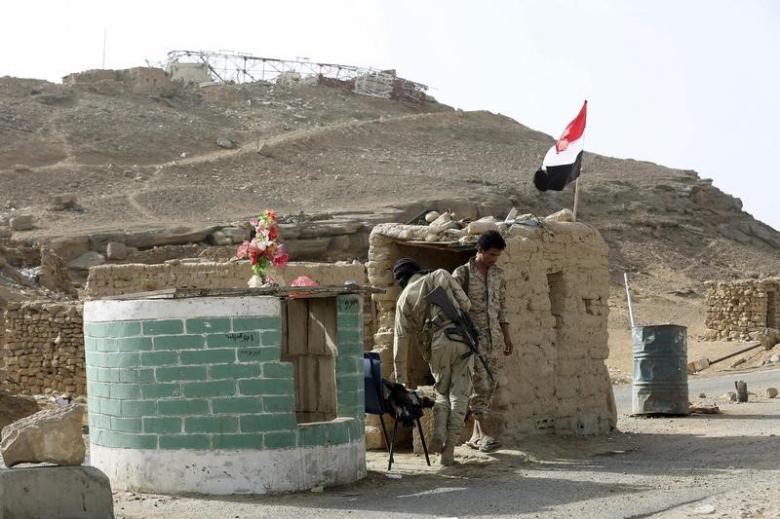Washington – Saudi Ambassador to Yemen Mohammed Al-Jaber told Asharq Al-Awsat newspaper that al-Qaeda terrorist organization in Yemen and Houthi rebels have swapped prisoners within the framework of continuous cooperation between the two groups.
He noted that such information has confirmed that Houthi rebels and supporters of ousted President Ali Abdullah Saleh could resort to any means to fight Yemen’s legitimate government.
In remarks on the sidelines of a two-day workshop addressing the military, political and humanitarian challenges of the Yemeni conflict held in Washington on Thursday, the Saudi ambassador reiterated the Kingdom’s support to the legitimate government and all the people of Yemen, while stressing commitment to international laws and treaties.
Asked about reports on Houthis’ armament of al-Qaeda in Yemen, Al Jaber said: “I have no established information on arm deals between the two sides, but I don’t rule out their involvement in such activities because they don’t respect international laws.”
On the other hand, the Saudi diplomat stressed that the Hodeidah port “needs to be under the control of the international community so that aid can be distributed to the Yemeni people.”
On Iran’s role in the Yemeni conflict, Jaber also criticized Iran’s “clear position… to destroy and undermine Yemen.”
He also accused Tehran of “supporting Houthis’ terrorism.”
Yemen’s Ambassador to Washington Ahmed Awad bin Mubarak, for his part, said that Houthi leaders “promote just as much extremism and violence as al-Qaeda.”
He stressed that the Saudi-led coalition forces “are pushing for a political solution” to the ongoing war.
In remarks during a gathering at the Washington Institute earlier this week, Jaber said the Kingdom and other countries in the coalition supporting Yemen’s legitimacy did not have any personal ambitions, but were seeking the establishment of security and stability in the war-torn country.
He added that war was not a choice, but came as an utmost necessity to save Yemen’s legitimacy and stop Iranian interference in the country.
